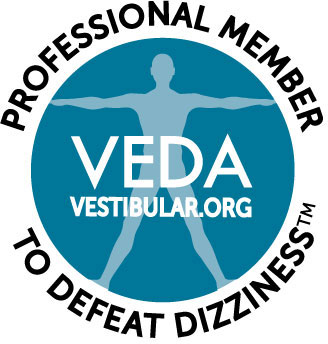The Yiddish word for destiny is bashert. I’ve been thinking a lot about destiny lately. Personally, my destiny or fate changed one day while reading one of my optometry journals on a plane trip. This particular article caught my eye because it mentioned the University of Michigan. My daughter is a student at Michigan, so I decided to read the article. It was about one optometrist’s specialty practice, and how she was helping people from all over with an often-misdiagnosed binocular vision disorder, vertical heterophoria. Patients from all over the country, and even out of the country, travel to Michigan to be treated by this doctor. Her name is Dr. Debby Feinberg of Vision Specialists of Michigan.

A Changed Course
I found Dr. Debby’s work so different and interesting that I decided to reach out to her. We spoke on the phone a number of times, and each time I became more and more intrigued with her work. Binocular vision was not even on my radar before I read that journal article. I was trained very medically and had started my career in glaucoma research, and though I was a good general optometrist with a young growing practice, I was never satisfied with my mode of practice. The idea of a specialty practice in binocular vision had never even entered my head.
I decided to go visit Vision Specialists of Michigan on a trip to see my daughter. From that visit onwards, I knew that neurovisual optometry was my fate. I walked into Dr. Feinberg’s office and said to myself, “I want to do this!”. And so my journey began. A few months later, I began to train with Dr. Debby. It was an intense week of training, observing and examining patients. Dr. Debby’s technique of treatment with prisms is very exact, and as I had almost no experience with them at all; prisms scared me! I had so much to learn that it was overwhelming at times.
‘No One Has Looked in the Right Place’
One of the reasons I initially found this work so exciting was because these patients were sick, suffering and searching for answers, and I had the opportunity to help them, with the right training. Patients with undiagnosed binocular vision problems have been told by countless doctors that there’s nothing wrong with them, despite experiencing headaches, dizziness and sensitivity to light, plus many other symptoms. They’ve undergone multiple tests and treatments, with little to no relief. Some have even been told it’s all in their heads. This is not true; it’s just that no one has looked in the right place.
If you or someone you know suffers from headaches and dizziness, neckache, anxiety or motion sickness, have them research vertical heterophoria. This condition cannot be detected on a routine eye exam. You must be tested by a doctor specially trained to diagnose and treat this condition. The treatment is a visual orthotic device called prism glasses, and while they may look like regular glasses to most people, to a patient with vertical heterophoria, these glasses are literally their medicine. When patients receive their first pair of prism glasses, they experience a substantial improvement in their symptoms during the first visit. They often can’t believe how much better they feel, and how quickly!
Spreading the Word
I am proud to say that I am one of the first doctors in the country to be trained by Dr. Debby Feinberg. 2019 marks the fourth year of my neurovisual practice, The Neuro Visual Center of New York, being in business. In the last four years, we’ve been able to help so many patients get their quality of life back. We’ve even added a new doctor, Dr. Marissa Zimmerman. This is my destiny, my bashert. My goal is to continue to spread the word about vertical heterophoria and help those suffering from its often-debilitating symptoms. To find out more, call the Neuro Visual Center today at (516) 224-4888.






Leave a Reply